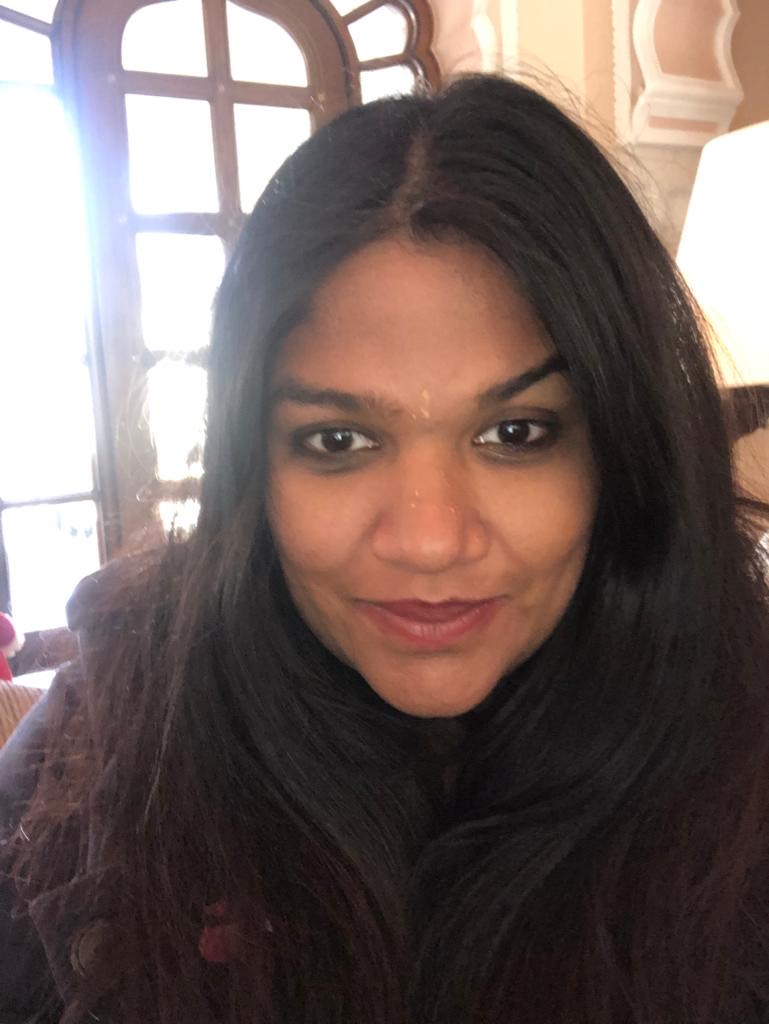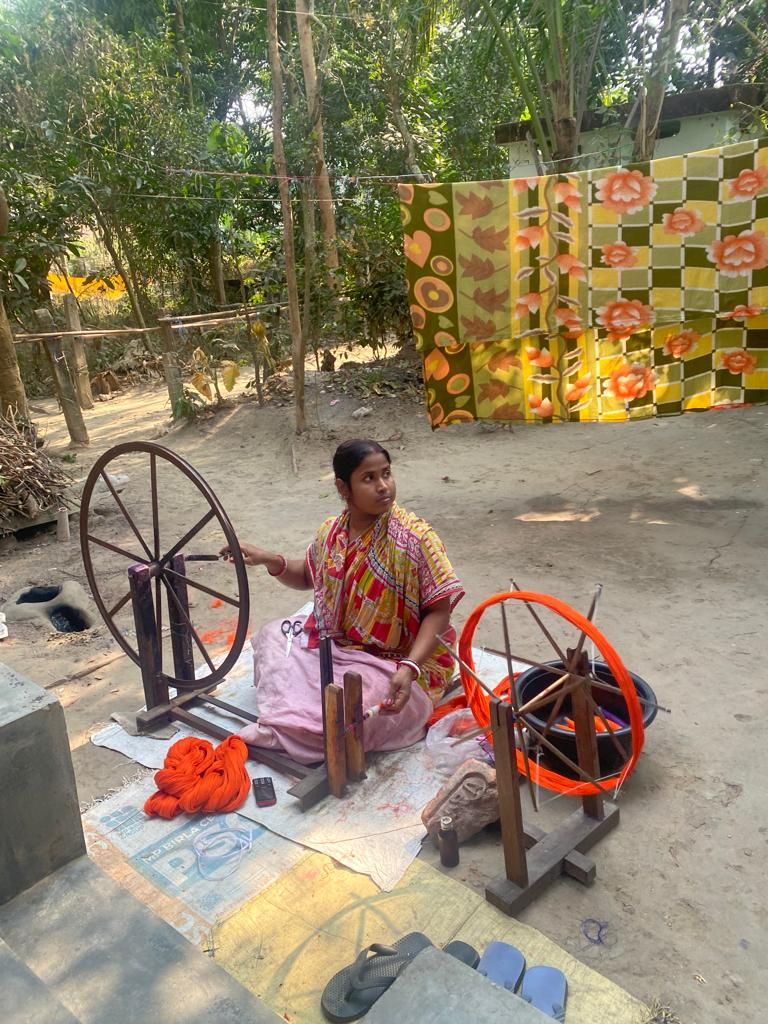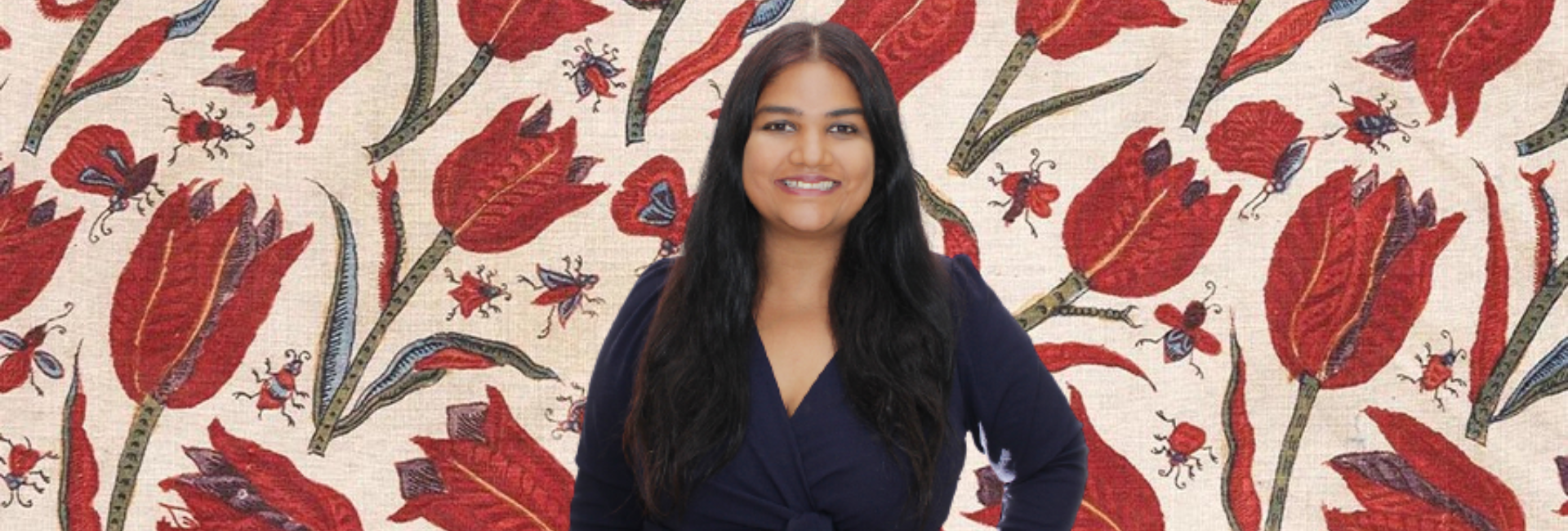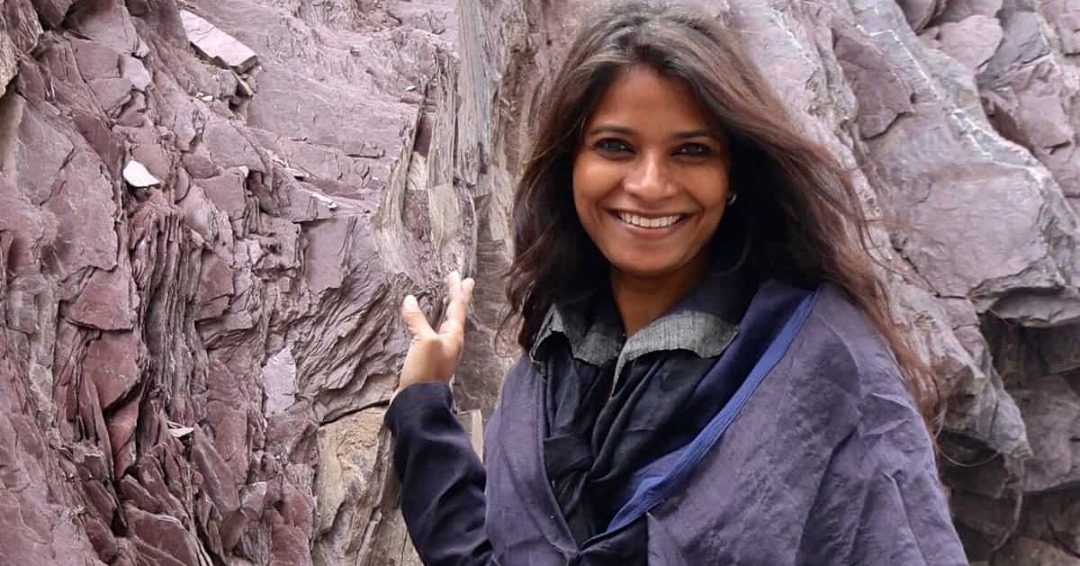Amrita Haralalka-Knight is the founder of Telaship.com, a community that connects local artisans of handmade fashion with fashion houses, businesses and consumers. Aimed at promoting diversity, upskilling rural artisans and preserving the traditions of Indian textiles. The platform has attracted over 10,000 artisans, including those with special needs, who collaborate to create a diverse range of handmade fashion products like hand embroidery, hand-weaving, pattern-making, block print and batik.
(June 14, 2023) As a child, Amrita Haralalka-Knight wanted to change the world but was too young to know how. “As a child, I was confused about what I wanted to be when I grew up. I just remember wanting to do my bit to change the world and make it a better place for women,” Haralalka-Knight tells Global Indian.
She grew up in Kolkata, amidst the family legacy in the textile business, and watched her grandfather build a garment store from scratch. It had a profound impact on Haralalka-Knight’s personality. “My great grandfather migrated to Kolkata and sold towels on the road. From there, he built his business and started garments stores.”

Amrita Haralalka-Knight, founder and CEO, Telaship
In the corporate world
Life took its course, Haralalka-Knight went to Xavier’s College in Kolkata to complete her BSc in Computer Science. After finishing her MBA from XLRI Jamshedpur, she got a job and began her career as a consultant with PWC. She would spend many years in the corporate world, out of which 11 were spent living and working in Singapore. During this time, she also set up home and raised her two daughters.
“I started with PWC India, then got a role with Procter and Gamble in Sydney,” says Haralaka-Knight. “From there, the company moved me to Singapore for more global roles. I moved across various roles and levels, and got the opportunity not only to lead a team in Singapore and Asia but was also entrusted with global roles and bandwidths,” she adds. Although she saw herself going into a socially-driven business one day, she also wanted a deep understanding of the growing e-commerce market especially through working with a giant like P&G.
“Our family has been in the textile business fora long time, so I have an innate knowledge of textiles and artisans,” says Haralalka-Knight. Her corporate career has also been in alignment with her ultimate aim – to bring artisans directly to designers and consumers. “I leveraged my family’s knowledge and my expertise in large-scale global businesses to help revolutionise the handmade industry,” she adds.
Building Telaship
Telaship was built and registered in Singapore, by the co-founders of Aakash Exports Pvt Ltd, who have been in the business since 2000. “Singapore is a great nurturing ground for startups and I have received alot of support from the Singapore Fashion Council, who have equipped me with design thinking workshops, mentors and a platform for my launch,” says Haralaka-Knight, who serves as Telaship’s founder and CEO.
The company’s purpose, as Haralaka-Knight foresaw it, was to build a community that fosters direct collaboration between artisans and fashion houses, business and consumers. “It allows them to co-create slow fashion and provides the spotlight to everyone in the value chain,” she says. With the network created by Aakash Exports Pvt Ltd over the last two decades, the company works with a vast network of artisans across India.
“Telaship.com helps local businesses sell textiles directly to global buyers through technology-enabled solutions,” says Haralaka-Knight. The company has been manufacturing and supplying fabrics worldwide since 2000, allowing “global buyers to connect directly with verified local artisans, manufacturers and suppliers for a fair, faster and more sustainable trade,” she explains. Aside from building this textile universe, Haralaka-Knight and her team are on their own journey of learning, as they attempt to re-imagine the process from fiber to closet, to create a brand of fashion that is easy on the planet’s resources.
“We have 10,000 artisans registered with us either individually, or through co-ops and business, or who are doing business with our platform,” Haralaka-Knight explains. Telaship also collaborates with NGOs to work with artisans with special needs. They collaborate with Telaship to learn hand-embroidery, to be able to build a business and income source for themselves. “Today we are proud to have a huge variety and high quality of artisans across hand embroidery, hand weaving of bio- degradable fabrics such as those made of rose petal cellulose, pattern making, hand stitching, block print, batik,” says Haralaka-Knight.
The magic, she believes, happens through combining different forms of art or bridging different cultures to co-create a masterpiece with a designer, business or an end consumer.
Approaching the market
Telaship uses a diversified market strategy to partner with businesses including traditional platforms such as trade fairs and also social media marketing, email marketing and client referrals. The company now has clients across Singapore, USA, Europe and Dubai.
“Since we started Telaship, we have already been selected as one of the five innovative businesses for the SIngapore fashion cloud for the Microsoft startup-foundation programme,” says Haralaka-Knight. She has also been included in to the AWS Tigerhall women leadership programme.
Paying it forward
“Our local artisans have the skill and capacity to even deliver projects for giants like Dior,” remarks Haralaka-Knight, adding, “But they have been kept behind the scenes, getting a mere 10 to 20 percent of the sale value.” Artisans brought on board by Telaship not only receive their due credit but also ensures they receive at least 70 percent of the same value.
“We flip the equation to create an ethical community,” Haralaka-Knight states. “Many of our local artisans today are from rural India and are also happy about the protection they receive from Telaship.” The company also organises workshops and training programmes to help artisans upskill and promote themselves. “Recently, we organised our second embroidery workshop for youths with special needs as a part of our ongoing efforts to promote artisans, and we are really proud of that,” Haralaka-Knight says.
Promoting diversity, preserving tradition
The aim, she explains, to provide specially-abled youth at the Metta Welfare Association with an opportunity to learn a new skill and express their creativity through the art of embroidery. Through this workshop, different artisans and designers were brought together to interact with the participants and share their expertise and there was a French embroidery mentor for the students. “We provided the necessary materials and instruction, and students were free to express themselves through this beautiful art form,” says Haralaka-Knight. “We were inspired by the enthusiasm and passion that everyone brought to the workshops and it was truly heart-warming to see how they supported and encouraged each other.”
The Telaship team believes that promoting the work of artisans transcends merely showcasing beautiful pieces of art. “It’s also about preserving traditional art forms and empowering communities,” Haralaka-Knight says. “We firmly believe that everyone should have access to the tools and resources needed to pursue their passions and achieve their goals.”

Haralaka-Knight is also committed to promoting diversity and inclusivity in the creative industry. “We believe that by fostering connections between artisans and designers, we can help build a more sustainable and equitable future for all,” she says.
Ingredient for success
The ability to take risks, Haralaka-Knight has learned, is foremost in her journey. “Dreams will change and mature but celebrate what you have achieved and plan for your next dream,” she signs off.
Follow Amrita Halalka-Knight on LinkedIn




